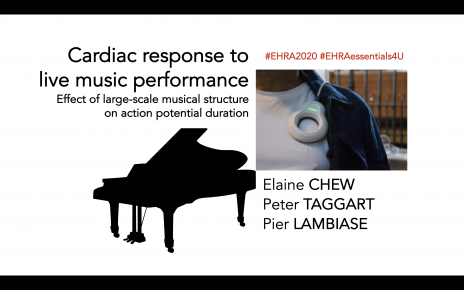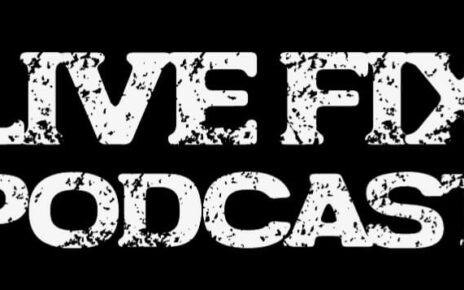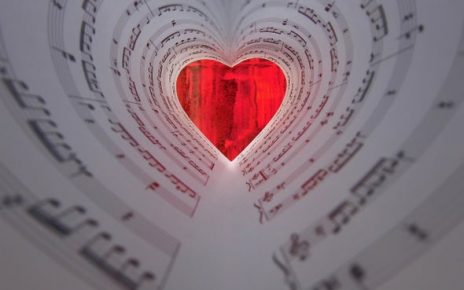The Radcliffe Institute for Advanced Study at Harvard University hosts our Exploratory Seminar on Music and the Heart on 17-18 November 2019. The seminar will convene an interdisciplinary group of experts for two days of discussion and reflection, and is timed to coincide with the Dario Robleto exhibit featuring the oldest known recording of a human heart and the sound of an artificial heart that does not beat.
See also the post-event recap of the Exploratory Seminar on Music and the Heart.
Website: projects.iq.harvard.edu/musicheart
Title:
Music and the Heart: Mathematical Connections and Interactions with the Mind
Organizers:
Elaine Chew (CNRS – UMR9912 / STMS) and Pier Lambaise (Barts Heart Centre / UCL)
Executive Summary:
The belief that music is inherent in the beating of the pulse can be traced back to the Middle Ages, a specific instance of the idea that music is intrinsic in the rhythms of the human body, termed musica humana. A theme of the seminar will explore the connections between music and the heart through mathematics. While music and heart rhythms, including abnormal ones, share many temporal (e.g. rhythmic) and other structural similarities, the mathematical formulation, computational analysis, and scientific visualization of music and cardiac information have developed independently. A cross-fertilization of ideas in these related domains stand to benefit both fields. Mathematical models of temporal structures in music can lead to new tools for characterizing and diagnosing pathological heart conditions; knowledge of cardiac electrophysiological behaviors can, in turn, give rise to new avenues for music research and practice.
Reaching farther back in time, ancient Egyptians regarded the heart to be the seat of human emotion. Emotionally charged events such as national disasters and the world cup are associated with increased cardiac risk. This is because mental stress induces changes in the electrical conduction and recovery (repolarization) of heart cells. However, how strong emotions destabilize the electrical activity of the heart is not well understood. On the other hand, music induces strong emotions. Because emotion response to music is the greatest common denominator of the musical experience, music emotion research is one of the most prolific domains of music research. Emotion and cardiac response are regulated by the autonomic nervous system, which is connected to the brain. Thus, another theme of the seminar will be to explore heart-brain, music-brain, and music-heart-brain interactions with the aim to better understand the pathways that affect mood and heart rhythm.
The seminar aims to instigate idea exchange between the scientific and artistic, and academic and clinical, communities in music and cardiology to expand and potentially change the understanding of music and the heart.




